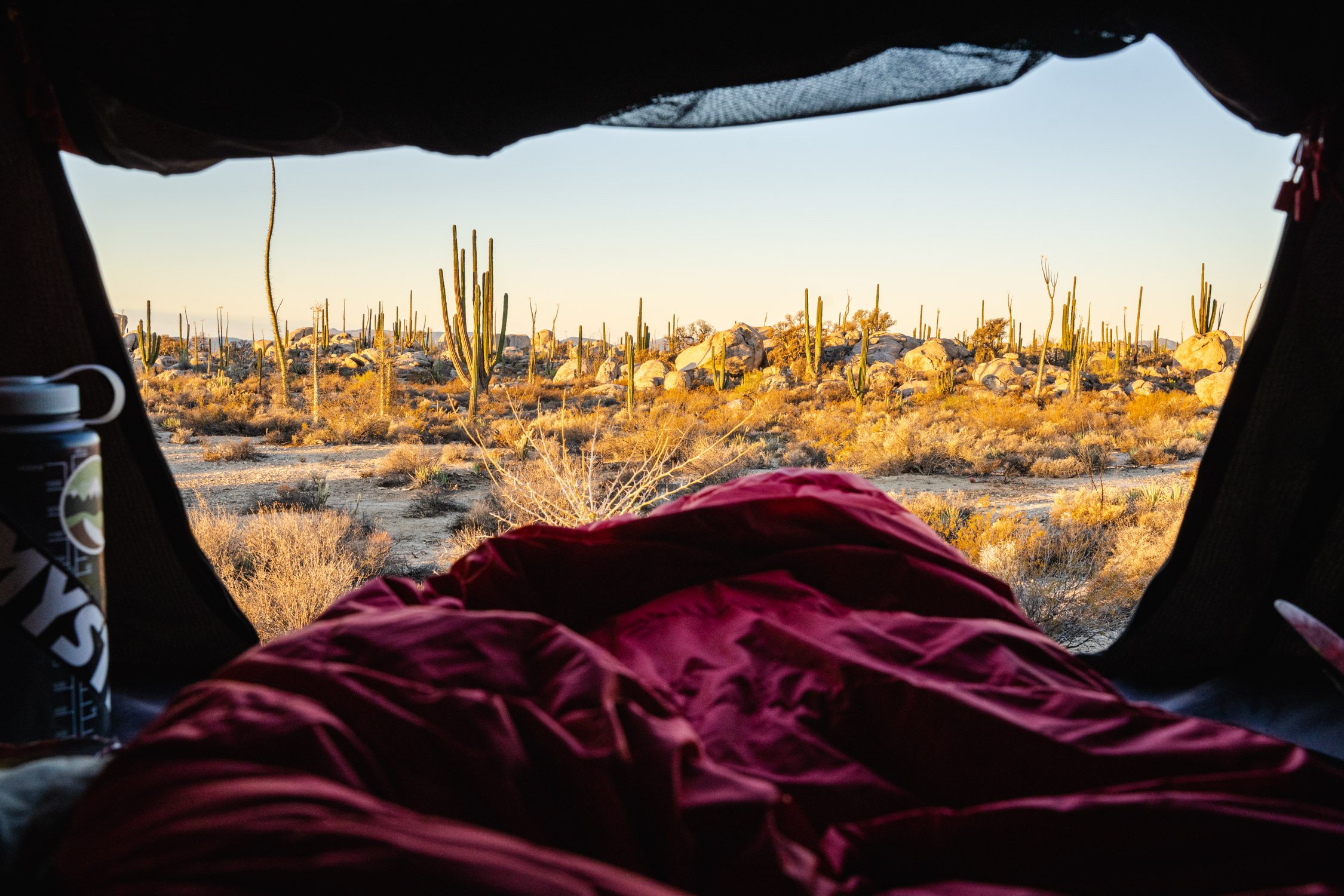Bikepacking combines the adventure of multi-day backpacking with the freedom and exhilaration of cycling, offering a unique way to explore the world. For those new to bikepacking, the idea of carrying all your gear on your bike and venturing into the wilderness can be both exciting and intimidating. This guide is designed to provide beginner bikepackers with 12 essential tips to ensure a safe, enjoyable, and successful journey. Whether you’re planning a weekend getaway or a cross-country trek, these tips will help you get started on the right foot—or pedal.
Soaking in the New Zealand coastal landscape while bikepacking solo around the South Island. Photo by Dalton Johnson
Background:
Bikepacking has grown in popularity as more people seek to combine their love of cycling with the desire to explore remote areas and immerse themselves in nature. Unlike traditional cycle touring, which often follows paved roads and established routes, bikepacking typically involves off-road trails, gravel paths, and backcountry roads. This more rugged approach requires not only physical endurance but also careful planning and a spirit of adventure. While the concept is simple—pack your gear, hop on your bike, and ride—there’s much to learn to make your first bikepacking trip a success.
12 Pro Tips for Beginner Bikepackers:
1. Start Small and Build Up
For your first bikepacking trip, choose a route that’s manageable and close to home. A weekend trip of 20-30 miles a day is a great starting point. This allows you to get a feel for the experience without overcommitting. As you gain confidence and experience, you can gradually take on longer and more challenging routes. Starting small helps you learn the basics and builds your endurance without overwhelming you.
2. Know Your Route
Before setting out, thoroughly research your route. Familiarize yourself with the terrain, elevation changes, and potential obstacles. Use maps, apps, and local guides to understand what to expect along the way. Knowing your route helps you plan for water sources, resupply points, and campsites, and it ensures that you’re prepared for any challenges the trail might present.
3. Practice Bike Handling Skills
Bikepacking often involves navigating rough and technical terrain. Practice your bike handling skills on trails or gravel paths before your trip. Focus on balance, braking, and maneuvering over obstacles like rocks and roots. Being comfortable with off-road riding will boost your confidence and make your bikepacking adventure more enjoyable.
4. Pack Efficiently
When it comes to bikepacking, every ounce counts. Pack only the essentials, and distribute the weight evenly across your bike. Use lightweight, compact gear, and consider multi-use items to save space. Practice packing and repacking your bike to ensure everything fits securely and doesn’t affect your balance or handling. Efficient packing helps you travel more comfortably and reduces strain on your bike.
5. Prepare for Weather Changes
Weather can be unpredictable, especially in remote areas. Check the forecast before your trip, but be prepared for sudden changes. Pack clothing that can be layered, and include waterproof gear, such as a rain jacket and rain pants. Staying warm and dry is crucial for your comfort and safety, especially when camping in the backcountry.
6. Focus on Nutrition and Hydration
Fueling your body properly is key to maintaining energy and stamina on a bikepacking trip. Plan your meals and snacks to provide a balance of carbohydrates, protein, and fats. Pack high-energy foods that are easy to eat on the go, such as energy bars, nuts, and dried fruit. Hydration is equally important—carry enough water and know where you can refill along your route. Proper nutrition and hydration will keep you going strong throughout your journey.
7. Pace Yourself
Bikepacking is a marathon, not a sprint. It’s important to pace yourself, especially on longer trips. Listen to your body and take breaks when needed. It’s better to ride at a steady pace that you can maintain over the course of several days than to push too hard and risk burnout or injury. Remember, the goal is to enjoy the journey, not just reach the destination.
8. Respect the Environment
Leave no trace is a key principle in bikepacking. Pack out all your trash, avoid disturbing wildlife, and stick to established trails and campsites. Be mindful of your impact on the environment and do your part to preserve the natural beauty of the places you visit. Respecting the environment ensures that future generations can enjoy these wild places too.
9. Know Basic Bike Repair
Mechanical issues can happen, especially on rough terrain. Learn basic bike repair skills, such as fixing a flat tire, adjusting your brakes, and repairing a broken chain. Carry a small repair kit with the necessary tools and spare parts. Knowing how to handle common bike issues will give you peace of mind and keep you moving forward if something goes wrong.
10. Plan for Campsites
Whether you’re wild camping or staying in established campgrounds, plan where you’ll camp each night. Consider factors like access to water, safety, and legality. If you’re camping in the backcountry, follow local regulations and practice leave-no-trace principles. Planning your campsites in advance helps you stay on track and ensures a safe and restful night’s sleep.
11. Build Mental Resilience
Bikepacking can be physically and mentally challenging. You may face tough climbs, bad weather, or moments of self-doubt. Building mental resilience is key to overcoming these challenges. Focus on the positives, break the journey into smaller, manageable goals, and remind yourself why you’re doing this. Mental strength will carry you through the tough times and make your accomplishments even more rewarding.
12. Embrace the Adventure
Finally, remember that bikepacking is about adventure and discovery. Embrace the unknown, enjoy the journey, and don’t stress about things not going perfectly. Some of the best experiences come from unexpected detours and unplanned moments. Stay open to the adventure, and you’ll come away with memories and stories that last a lifetime.
Mid trip selfie while bikepacking along Highway 395. Photo by Dalton Johnson
Bikepacking offers a unique and rewarding way to explore the world, combining the thrill of cycling with the adventure of backcountry travel. By following these 12 pro tips, beginner bikepackers can embark on their first journey with confidence and enthusiasm. Whether you’re heading into the mountains, across the desert, or along the coast, bikepacking is an adventure like no other. So pack your gear, hop on your bike, and pedal your way into the great unknown—the adventure is just beginning!








